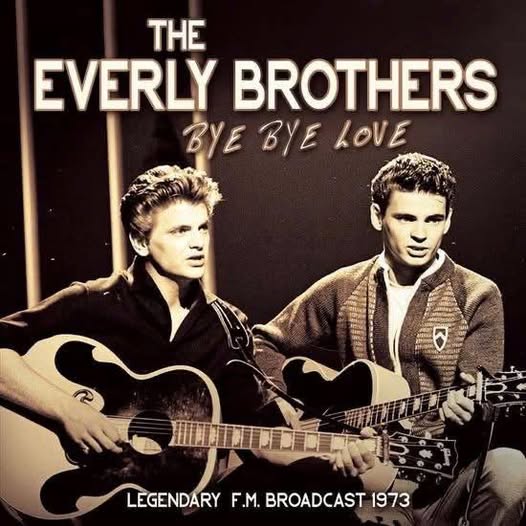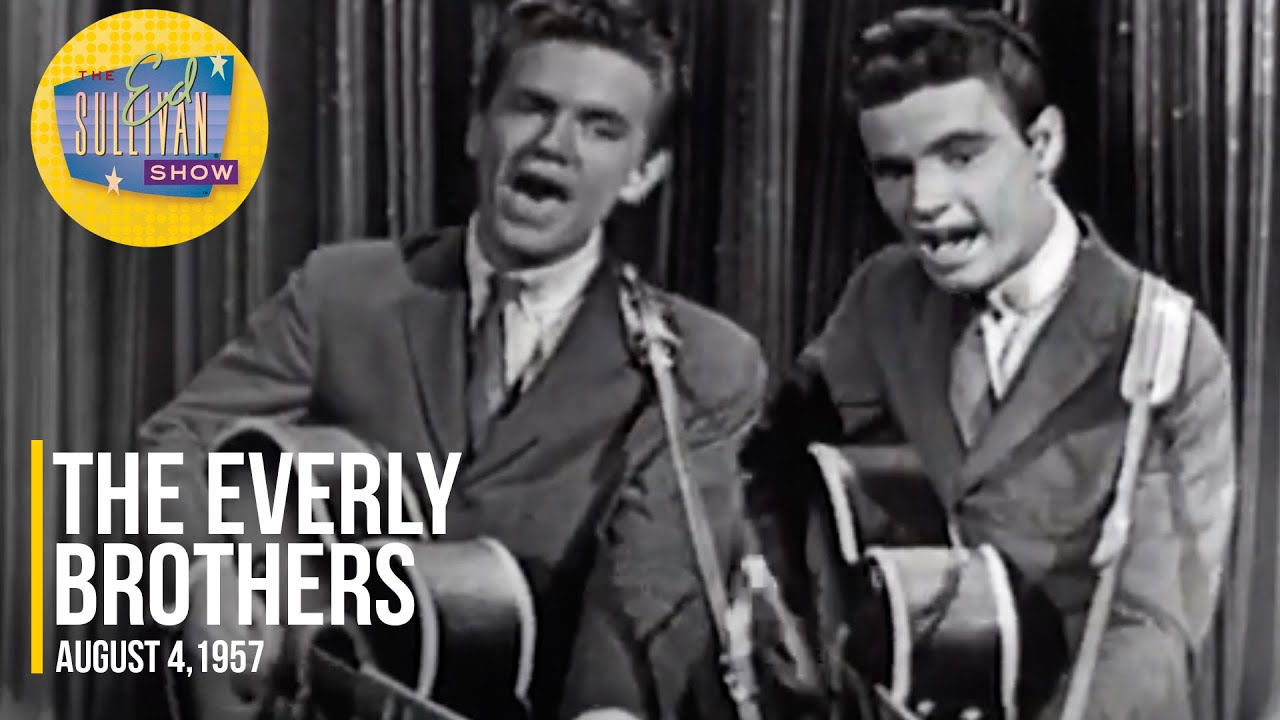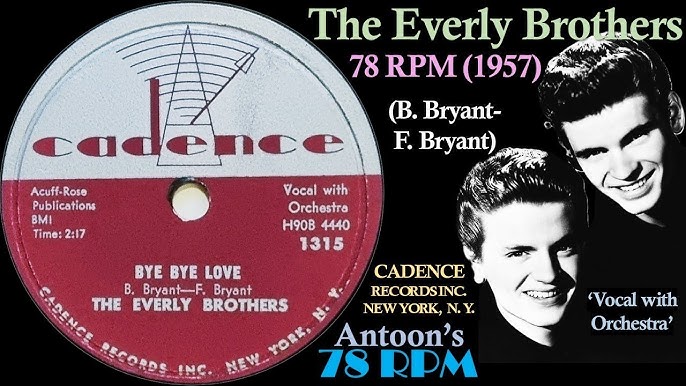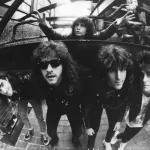Everly Brothers – “Bye Bye Love” (1957)

Everly Brothers – “Bye Bye Love” (1957)
The song that launched a revolution in harmony.
When Don and Phil Everly stepped into the studio in 1957 and recorded “Bye Bye Love,” they weren’t just laying down a catchy tune — they were making music history. With its bittersweet lyrics, rhythmic guitar strums, and, most importantly, those heavenly sibling harmonies, the song became a defining moment in the birth of modern rock and roll.
What makes the story behind “Bye Bye Love” even more remarkable is how close it came to being lost forever. Written by the legendary Felice and Boudleaux Bryant, the song was turned down by more than 30 acts before the Everly Brothers took a chance on it. That gamble paid off — and then some.
Upon release, “Bye Bye Love” soared to No. 2 on the Billboard Hot 100, topped the Country chart, and became an instant smash. But more importantly, it introduced the world to the Everlys’ signature style: close, high-lonesome harmonies that blurred the lines between country, pop, and early rock. Their blend of traditional Appalachian roots with youthful energy was something new — and utterly captivating.
it introduced the world to the Everlys’ signature style: close, high-lonesome harmonies that blurred the lines between country, pop, and early rock. Their blend of traditional Appalachian roots with youthful energy was something new — and utterly captivating.
“Bye bye love, bye bye happiness…”
The lyric is pure heartbreak, but somehow, the Everly Brothers made it sound joyful, even liberating. There’s a bounce in the rhythm, a spark in the harmonies, and a timeless charm that made the song impossible to forget.
The influence of “Bye Bye Love” would ripple across decades. Elvis Presley admired them. The Beatles studied them. Simon & Garfunkel idolized them. Their vocal interplay set the template for duos and groups for generations to come. Lennon and McCartney famously tried to emulate the Everlys’ harmonies, and Paul Simon once said their sound “felt like the most beautiful thing you’d ever heard.”
Beyond charts and accolades, this song redefined what vocal harmony in pop music could be — not just background texture, but front and center, emotional and essential.
To this day, “Bye Bye Love” remains one of the most important recordings of the 20th century. It was the Everly Brothers’ breakthrough — and in many ways, the world’s first taste of what harmony could really do in popular music.











